Talking Story
Ah, the mysteries of narrative. Whether you write prose or poetry, fiction or nonfiction, I hope these provocative pieces, tips on writing, and thoughts on literary style will help you as a storyteller. I also try to define some terms for you—whether narrative journalism, the difference between grammar and usage, or the idea of truth in storytelling.
| |
Cinematic writing
Defining the literature of fact
I’ve been struggling to find the right term for the nonfiction writing I most admire. Whether written by Joan Didion, David Grann, Susan Orlean, Héctor Tobar, Isabel Wilkerson, or Gene Weingarten, these are articles, essays, and books that combine suspenseful storytelling with literary style. They tackle true stories in a way that makes me feel, when I put them down, that I have learned something about the human experience but also something about writing.
| |
From Homer to Homer Simpson
The role of plot in storytelling
Adam Hochschild, the author of 10 books that blend history, journalism, and storytelling, once wrote about visiting with a young cousin who was studying civil engineering. “I’ve never really understood,” the ever-curious journalist asked his cousin. “What’s the difference between an architect and an engineer?”
His cousin obliged, answering: “An architect is the person who plans what the skyscraper is going to look like from the outside. An engineer is the person who makes sure it doesn’t fall down.”
| |
The art of writing free
Sarah Baker reflects on unleashing the unconscious
Nearly every writing book on my shelf suggests the same somewhat mysterious daily practice. It has many names: “morning pages” in Julia Cameron’s The Artist’s Way; “first thoughts” in Natalie Goldberg’s Writing Down the Bones; and “early morning writing” in Becoming a Writer, by Dorothea Brande. Peter Elbow, author of Writing Without Teachers, prefers the somewhat ungainly but increasingly popular “freewriting.”
According to these gurus, beginning writers as well as seasoned ones freewrite for many reasons. Sometimes, as Cameron writes, it empties your mind of the garbage that would needle at you anyway. I find it a useful channel for my ever-churning, over-active brain. It’s efficient therapy—cheap and fast.
| |
13 ways of looking at flash fiction
Grant Faulkner on the infinite possibilities of brevity
Of all of the forms of fiction, “flash fiction,” which is typically defined as being a story less than 1,000 words, is the only one described with a metaphor. As James Thomas, the editor of several seminal anthologies of flash fiction, tells the story, he was talking with his wife about what to call these short stories of under 1,000 words. He’d been calling them “blasters,” but that moniker didn’t ring with any poetic allure. Right at that moment, a bolt of lightning struck, and the dark night lit up with a flash. “Call them flash,” his wife said. And the name of a genre was born.
| |
Inspired research and controlled kleptomania
Solid facts enhance your writing and safeguard your credibility
| |
The literary portrait
Painters can teach us about the practice of sketching people
Most writers who consider themselves storytellers—whether they are poets, novelists, or narrative journalists—know that characters are key to any great yarn. Yet developing characters is harder than you think. Especially minor characters, where we might only have a few words to make an impression. The ability to craft a deft “character sketch” may be more important than a deep “character description.”
| |
The voice of the storyteller
Becoming a writerly raconteur
When I was a child, my father, an Army officer, was posted to South Korea. Each week, he would send us the Sunday comics, along with a cassette in which he read them out loud. He didn’t want us to forget the sound of his voice.
My father was quite the raconteur. He let his voice go gravelly when reading the part of Sarge in “Beetle Bailey,” and he adopted a suave register when playing Prince Valiant. He knew that good storytelling required not just a good story (or at least some decent comics), but also a good storyteller.
| |
The sound of a sentence
Imbuing language with melody
At the top of my list of favorite children’s books is “Goodnight Moon,” with its soft lines and easy rhymes (Goodnight stars/ Goodnight air/ Goodnight noises everywhere.). I never tire of the story, no matter how many children I read it to. My other favorite is “Green Eggs and Ham,” with its topsy-turvy sentences (I am Sam. Sam I am.) and subversive humor (And I will eat them in the rain. And in the dark. And on a train.).
| |
Lydia Sviatoslavsky with a disruptive view on style
Consulting the crass
| |





